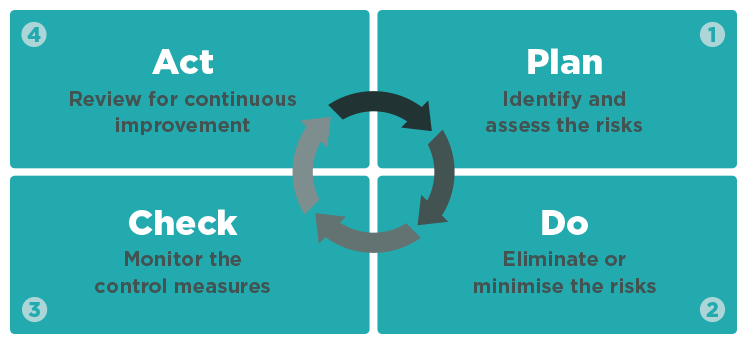Different businesses will have different health and safety risks. It all depends on the type of work you do.
Healthy and safe work starts with identifying and understanding what your work-related health and safety risks are. It then involves doing what is reasonable and practicable to eliminate those risks. Where the risk cannot be eliminated, it must be minimised so far as is reasonably practicable.
- See our fact sheet, Reasonably practicable to help you decide what is reasonably practicable in your circumstances.
Focus on your business’s critical risks first before managing less serious risks. Review your work activities on an ongoing basis to identify any new risks that need to be managed.
Work with other businesses if you have shared work risks (eg if you share a workplace or in a contracting chain).
Always ask workers for input on identifying health and safety risks, and when choosing solutions. People are more likely to take responsibility and make good choices if they’ve been involved in the conversation. Workers are the eyes and ears of your business. They could suggest practical, cost-effective solutions.
See below for general guidance on how to manage your work health and safety risks. We also have examples and guidance to help you identify what risk looks like in your industry.
Using Plan-Do-Check-Act
Following these four steps can help you with managing your work health and safety risks.

For more information on identifying, assessing and managing risks, see:
It's not all about creating lots of paperwork
Having lots of paperwork does not equal good health and safety. Use paperwork where appropriate to support your health and safety processes - but it’s not a substitute for having good processes and control measures in place.
Related information
Last updated